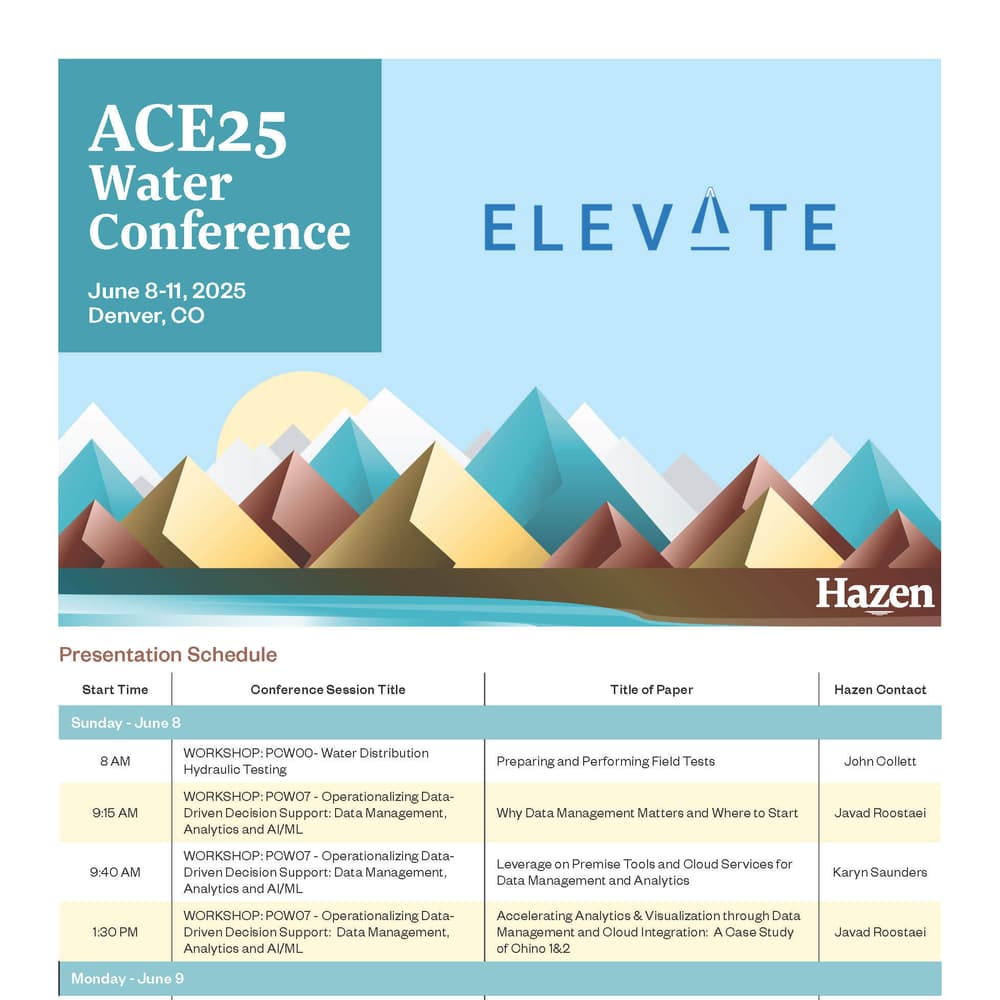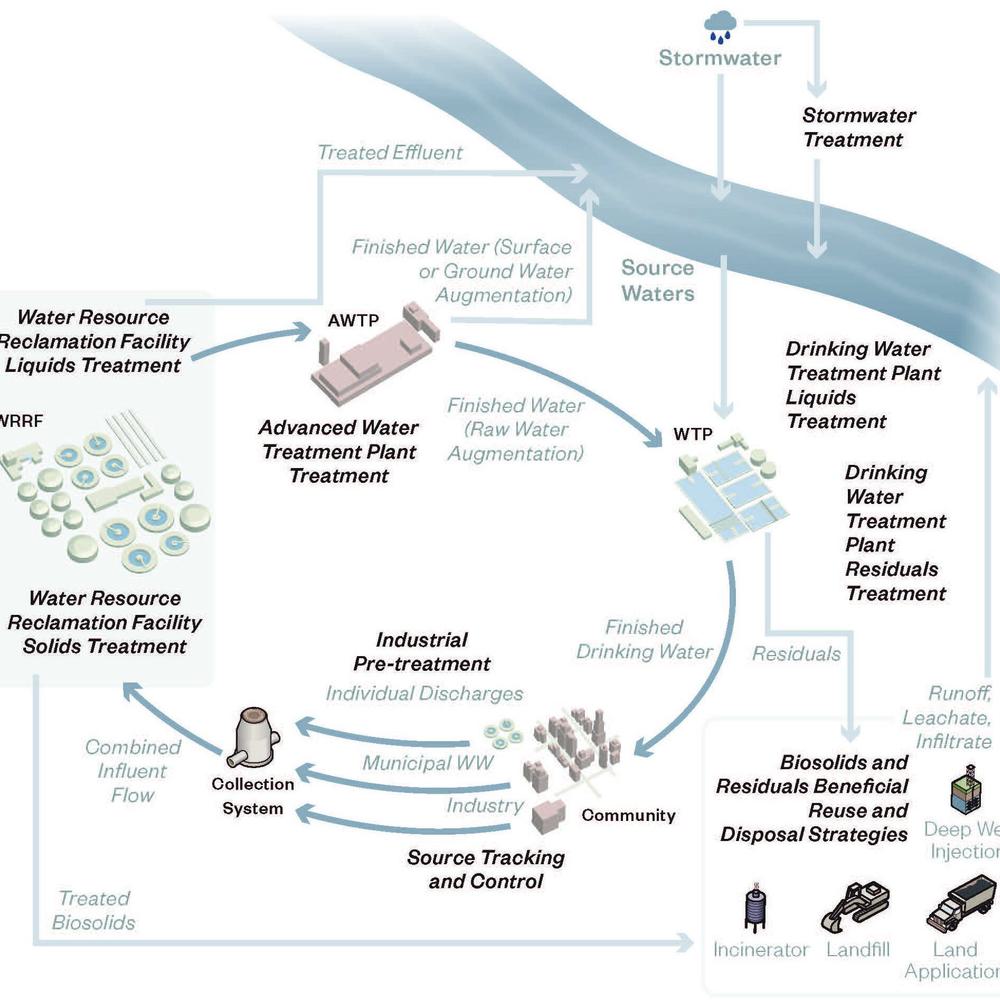Long Term Strategies for Charlotte Water’s Corrosion Control Optimization
Last Modified Feb 08, 2023
Charlotte Water consistently produces a high quality finished water that meets customer expectations, internal benchmarks, and drinking water regulations, including the Lead and Copper Rule. However, the changing quality of CLTWater’s source water has resulted in an increasing trend in the formation of trihalomethanes (THMs) at several distribution system sampling locations. In addition to free chlorine for disinfection, lime is added to the finished water to adjust the pH to above 8.0 for corrosion control. Although a high finished water pH reduces the solubility of lead, it also favors production of THMs as well as reducing the disinfection efficiency of free chlorine. A corrosion control pilot study was performed to assess if a lower finished water pH, in conjunction with a phosphate-based chemical corrosion inhibitor, could offer a more effective overall treatment strategy.
Related Solutions:

This presentation will present results and conclusions from pilot operation at the Franklin WTP from 2014-2016. The initial phase of the pilot study invested four alternative corrosion control strategies to the existing plant finished water, including non-zinc orthophosphate, a 50%:50% poly:orthophosphate blend, a 70%:30% poly:orthophosphate blend, and increasing alkalinity using sodium bicarbonate. Results included both aqueous lead and copper concentrations from 8-hour standing samples and corrosion rates of metal coupons for copper, lead, steel, and brass. From the pilot testing, it appeared that two of the phosphate-based inhibitor trains performed at least as well as the control of plant finished water in terms of corrosion control protection. The next phase of the pilot study tested the implementation of the new corrosion control strategy on the pilot rack to minimize the dissolution of the existing protective layers along the interior pipe walls while passivating the pipe with the phosphate-based corrosion inhibitor.

After conducting the corrosion studies and pilot testing to determine the optimal treatment strategy, Hazen worked with Charlotte Water to construct new corrosion inhibitor feed systems. Hazen performed design of the corrosion inhibitor feed system for three water treatment plants in Charlotte and provided construction support services.











